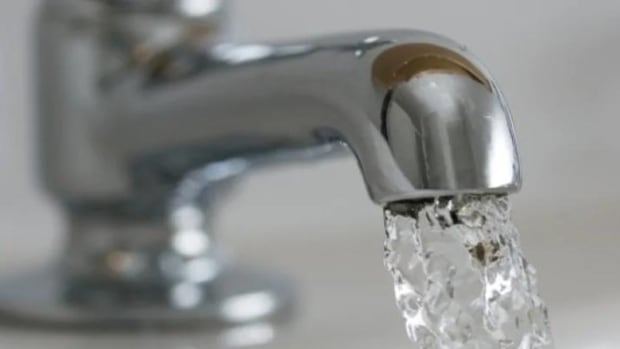
Canada is stressing the “unwavering” but “political” nature of its commitment to providing First Nations with clean water, as it details a defence against a national class-action lawsuit.
Scott Farlinger, legal counsel with Justice Canada, told court on Tuesday that Canada “readily acknowledges” previous governments have underfunded water services for First Nations.
But, in the current government’s view, “things are not the same at present as they were in 1995,” Farlinger told Federal Court Justice Paul Favel in Ottawa.
The remote northern Manitoba community of Shamattawa First Nation and its Chief Jordna Hill are pursuing the class action for all First Nations members whose community was subject to a drinking water advisory in effect on or after June 20, 2020.
Farlinger said that makes this case, filed in 2022, different from past class actions on water access, which the Liberal government settled out of court for $8 billion. That settlement covers drinking water advisories going back to 1995.
Canada argues it has deployed significant measures, including billions of dollars for new on-reserve water infrastructure and services, resulting in the lifting of more than 140 long-term drinking water advisories since 2015, with 33 now remaining.
“The current government’s political commitment to addressing access to drinking water on reserve has been unwavering,” Farlinger said. “That is the scale of the government’s efforts.”
The plaintiffs, calling the situation “an urgent human rights crisis,” have filed a motion for summary judgment that Canada has a legal obligation to ensure First Nations have safe drinking water.
Shamattawa, which has been under a drinking water advisory for six years, argues First Nations have a basic human right to potable water that Canada has breached. Fifty-nine other First Nations have opted into the current case.
Farlinger told court that Canada isn’t saying “everything is better now” and all issues are fixed. Canada knows issues may exist in a given First Nations community, but the current motion is limited to the question of Canada’s legal duties, he said.
On this, Canada argues it provides funding and program support for on-reserve water infrastructure “as a matter of public policy and the exercise of the federal spending power.”
In other words, imposing a legal duty to ensure First Nations have safe water could fetter the government’s ability to make political decisions about how to spread limited cash among competing groups and interests, according to Canada.
“Canada’s spending on First Nations’ water must obviously compete with the rest of its budget allocations,” says the government’s written argument.
“Within the program’s own context, budgeting must also be allocated across regions, and prioritized among competing First Nations.”
‘A national embarrassment,’ writes chief
The plaintiffs are scheduled to reply on Wednesday, when the hearing on this particular motion will conclude.
The plaintiffs’ written reply argument suggests they will dispute that Canada’s commitment is in fact unwavering.
“If that were true, this action would not be necessary,” says the plaintiff’s written reply.
The plaintiffs say it’s problematic Canada has long treated this issue “as a matter of simple good governance, and at times a matter of charity, without any accountability,” because First Nations now know they can’t rely on Canada’s promises.
“This action proved necessary because ‘trust us’ no longer suffices in view of the hardships that class members have endured,” says the reply argument.
“The time has come to declare enforceable rights.”
In a Sept. 15 letter to his MP, Hill accused Canada of pointing the finger at First Nations.
“Canada’s decision to fight First Nations over access to clean drinking water is a national embarrassment,” Hill wrote to the NDP’s Niki Ashton, whose riding includes Shamattawa.
Ashton told CBC Indigenous she felt the treatment was heartbreaking and the arguments hypocritical. NDP Leader Jagmeet Singh also weighed in on Tuesday.
“Justin Trudeau, call your lawyers off,” Singh posted on X, formerly Twitter.
“Provide clean water, now.”
In a statement, Indigenous Services Canada pointed to the Liberals’ proposed clean drinking water for First Nations legislation, which the department says will hold the government accountable.
Canada respects Shamattawa’s decision to seek the court’s assistance on this important issue, the statement said.
“Everyone in Canada should have access to reliable, safe and clean drinking water.”
In court on Monday, plaintiffs’ counsel Michael Rosenberg, a partner with McCarthy Tétrault LLP in Toronto, accused Canada of blaming the victims.
Farlinger rejected that suggestion, saying that Canada only wants to point out “variability” exists across communities: different systems, challenges, circumstances and impacts.
“This idea that the suggestion of variability equates to Canada blaming class members is found nowhere in our materials,” he said.